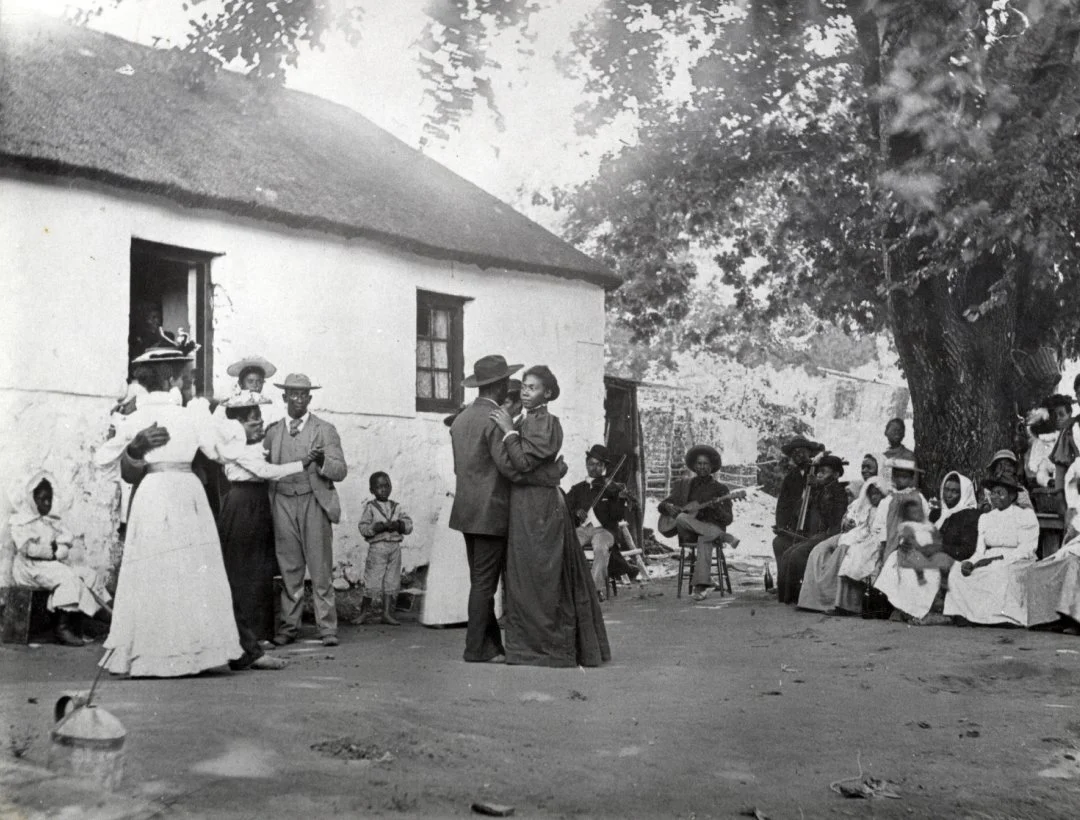Local Legacies of Slavery
Enslaved people working on a roof in Cape Town, 19th century. Image: E 1933, Western Cape Archives and Records Service
Through this exhibition we pay tribute to the thousands of people forcibly uprooted from their homes in various parts of Africa and Asia and enslaved at the Cape, as well as those born into slavery locally; who contributed to the social fabric, economy and the built environment of Cape Town and the Western Cape.
Protea Village, Kirstenbosch in the early 20th century. Image: E 15148, Western Cape Archives and Records Service.
The legacy of Cape slavery echoes in our names and surnames, our cultural practices, the creole food we eat, the creole language we speak, our music and the religions we practice.
Emancipation Day commemoration, 1904. Image: E 7892, Western Cape Archives and Records Service
Urban and rural communities throughout the Western Cape continue to commemorate the end of slavery. Instead of only some of us attending annual commemorations on 1 December, all of us need to consider how this often forgotten and neglected 'slave' past has shaped our society and heritage not only throughout the Western Cape, but in South Africa as a whole.
Slavery has fundamentally shaped South Africa from the beginning of its colonial history and provided many of the building blocks for a society based on racial oppression. Legislated apartheid was enforced little over a century after the emancipation of the enslaved. Many apartheid laws, such as the Group Areas Act and the pass laws were based on legislation governing both enslaved and dispossessed indigenous people.
'Slave'-bells found at different sites throughout the Western Cape tangibly remind us of the widespread and far-reaching legacies of slavery. Image: J 3767, Western Cape Archives and Records Service
Slavery's legacy continues to shape our perspectives. This calls us to open up dialogue and take action towards ending generational poverty and trauma, gender-based violence, racial discrimination and discriminatory practices in the agricultural and domestic labour industries.
Despite the harsh realities of slavery and the continued discrimination and restrictions on their life choices after emancipation, our enslaved ancestors showed much resilience in rising above extreme adversity. The invaluable contribution to the social and economic well-being of our present society by many South Africans who are descendants of people enslaved at the Cape should inspire us all to create a better future together.




